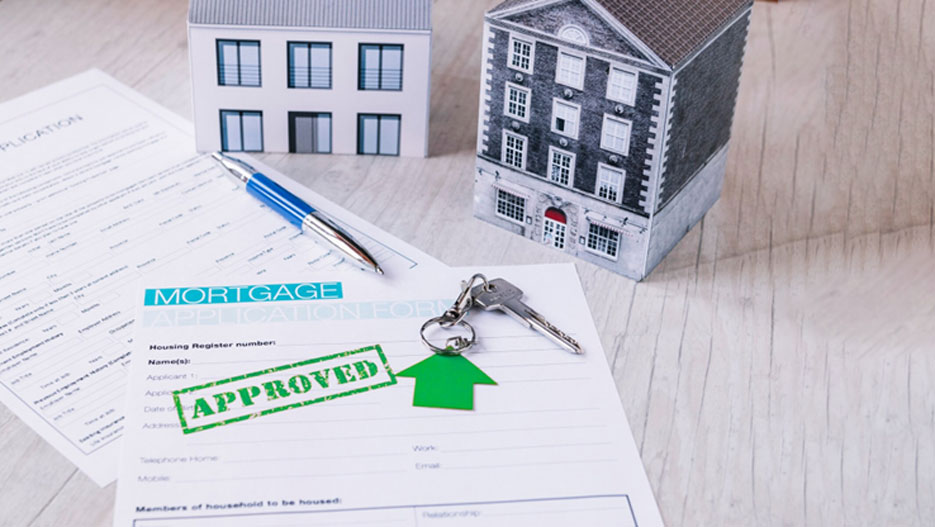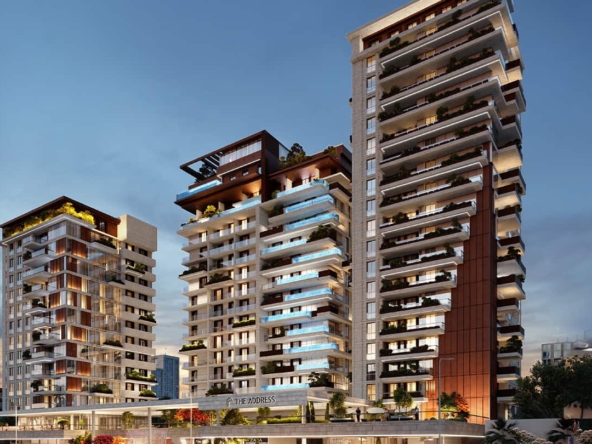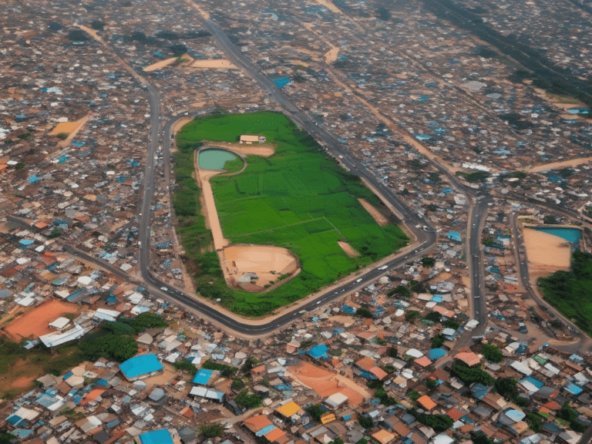To purchase property in Ghana, foreign investors must comprehend financing options. This guide explains tactics to obtain a mortgage in Ghana, with a focus on foreign nationals.
Unique Aspects of International Mortgages for Ghanaian Properties
Some key differences exist between domestic and international mortgages for financing real estate purchases in Ghana:
• Higher down payments – Often a minimum of 25% is required from foreign buyers versus 5-20% for local buyers.
• Shorter repayment terms – Foreign buyers are often limited to 15-year mortgages, while local terms can reach 20 years. Means higher monthly payments.
• Higher interest rates – International buyers pay higher interest rates, often 1-3% above local rates, because of perceived higher risk.
• Restrictions on property types – Foreigners sometimes cannot obtain mortgages for leasehold properties or some multifamily buildings.
• Limits on financeable properties – Many lenders only finance properties in prime areas like Accra, not rural or undeveloped regions.
• Prepayment penalties – International mortgages often include penalties for early repayment, which adds cost if selling before the mortgage term ends.
Working with a broker familiar with the nuances of financing real estate for foreign nationals in Ghana can help navigate these unique barriers.
Tips for Getting Approved for a Mortgage as a Foreign Buyer
Foreign property buyers face more scrutiny when seeking mortgage financing in Ghana. These tips improve the chances of getting approved:
• Work with an international lender – Domestic banks limit loans to foreign nationals. Specialized international lenders understand overseas income and assets.
• Leverage local relationships – Having a local bank account, job ties, or business investments can demonstrate commitment to Ghana.
• Make a large down payment – Providing 30-50% as a down payment gives lenders more assurance of repayment ability.
• Select property carefully – Only choose properties accepted by most lenders, like single-family homes or condos in prime areas.
• Ensure a clean credit history – Any past late payments or defaults get magnified, so maintain excellent credit. Provide a co-signer if needed.
• Document all income sources – Fully account for all employment, investments, and business revenues to satisfy income requirements.
Following these best practices improves the chances of successfully financing real estate investments in Ghana as an overseas buyer.
Getting Pre-Approved for a Mortgage
Working with an international lender familiar with the Ghanaian real estate market is crucial for pre-approval. Requirements include:
• Income verification – Documents validating stable income sources and amounts. Foreign income statements typically need an official translation.
• Down payment funds – Around 25-50% down is required. Must document sources of down payment, like bank statements, and investment accounts.
• Credit check – Lenders will check credit history to assess the reliability of the borrower. Require a minimum credit score.
• Property appraisal – Once a property is identified, lenders will assess its value to determine the maximum loan amount.
• Legal fees – Lawyers review sales agreements, validate property ownership, and complete registrations. This protects the lender’s interest.
• Occupancy plan – State if the property will be a primary residence, secondary home, or investment property. Investment properties often require higher down payments.
Being patient and responding promptly to lender requests during the pre-approval process ensures the best mortgage terms possible as a foreign buyer.
Key Factors That Influence Mortgage Costs
Several variables affect the overall cost of obtaining an international mortgage for buying real estate in Ghana. These include:
• Interest rate – The rate determines monthly principal and interest payments. Higher rates drive up long-term costs.
• Loan fees – Lenders charge origination and application fees, often 1-2% of the loan amount.
• Discount points – Paying points upfront reduces interest rates over the loan term. Each point equals 1% of the mortgage amount.
• Insurance requirements – Lenders require mortgage insurance for high LTV loans, adding to payment.
• Loan amount – The size of the mortgage influences the amount of interest paid over its term.
• Loan term – Shorter terms have higher monthly payments. Longer terms mean more interest paid.
• Down payment – A larger down payment reduces the loan amount, decreasing overall interest costs.
• Property taxes & insurance – Where applicable, these costs get added to monthly payments.
Shopping among multiple lenders, evaluating term lengths, and making a substantial down payment can help minimize total mortgage costs for international buyers.
Qualifying for a Mortgage in Ghana as a Foreigner
Mortgage qualification criteria are typically more stringent for international buyers purchasing property in Ghana versus local nationals. Key requirements include:
Income Verification
• Minimum monthly income around GHS 5,000
• Allowance made for other assets if income lower
• Self-employed may need 2 years of tax returns
Credit Score
• Minimum 680 credit score required
• A higher down payment can offset lower scores
Down Payment
• 30-50% down payment expected
• Must document sources of down payment funds
Debt-to-Income Ratio
• Maximum 50% of gross income for total monthly debt payments including new mortgage
Property Type & Location
• Typically limit lending to primary residences and single-family homes
• Properties must be in prime locations like Accra and Kumasi
With larger down payments, strong credit, and verified assets, international buyers can improve their ability to qualify for mortgage financing to purchase real estate in Ghana’s most desirable areas.
Ghanaian Property Taxes Impacting Mortgage Costs
Mortgage lenders require borrowers to pay property taxes and other charges in escrow along with monthly payments. Key taxes adding to costs in Ghana include:
• Property Rates – Annual assessed rates help fund local councils providing infrastructure and services.
• Capital Gains Tax – A flat 15% capital gains tax on profits from selling Ghanaian real estate, paid by the seller. Reduces net sale proceeds impacting new purchase financing.
• Stamp Duty – Required for property transfers, around 1-2% of property value. Stamp duty is bifurcated between buyer and seller.
• Mortgage Registration Fees – One must pay approximately 1% of the mortgage loan amount to legally register any mortgage.
• Income Tax – Applicable on rental income earned from investment properties, reducing the amount available for mortgage payments.
• Value Added Tax (VAT) – Added to costs for construction materials, legal fees, and other property purchase expenses.
Understanding the tax obligations associated with homeownership in Ghana allows international buyers to adequately budget for these costs when financing real estate investments in the country.
Overcoming Challenges Getting a Mortgage in Ghana
Some common hurdles foreign buyers face when seeking Ghanaian mortgages, and tips to address them, include:
1. Limited Credit History – Provide reference letters from banks in the home country detailing account history. Make a larger down payment.
2. Insufficient Income Documentation – Get all income statements officially translated. Have the employer directly validate income and employment.
3. High Debt Ratios – Pay down existing debts. Add a co-signer who meets debt ratio requirements.
4. Less-known Employers – Provide comprehensive background on the company, plus contact info for verification.
5. Unverifiable Down Payment Sources – Thoroughly document funds history, like statements showing the seasoning of accounts.
6. Short-term or Informal Residency Status – Provide permanent resident visa if available, or evidence of long-term ties to Ghana. Rent first before purchasing to show commitment.
With persistence and preparation, international buyers can overcome the obstacles of obtaining home financing in Ghana and achieve their real estate investment goals.
Expert Tips for Foreigners Seeking Ghanaian Mortgages
Along with advice already covered, these additional expert tips help guide foreigners through the process of securing financing for Ghanaian property purchases:
• Hire a real estate attorney – they’ll review contracts, navigate legal steps, and prevent missteps.
• Consider alternative locations like Kumasi that provide better value and may have easier approval terms.
• If you don’t qualify for a mortgage, offer larger down payments until a lender’s thresholds are met.
• Compare banks recommended by your real estate agent and independent research to get the best options.
• Seek pre-approval before viewing homes so you only see what you can afford with confirmed financing.
• Lock interest rates as soon as possible after submitting a purchase contract. Rates change daily.
• Make extra mortgage payments when possible to reduce principal and overall interest costs faster.
• Avoid large purchases that may impact your debt-to-income ratio until after closing on your home loan.
With the right lender relationship, timely preparations, and financial prudence, financing real estate investments as foreign buyers in Ghana can be a smooth, achievable process.
Conclusion
Partnering with reputable developers like VAAL Ghana can provide turnkey solutions to simplify the process. Their new Harmonia Residence development offers furnished, amenity-rich apartments starting from $98,000 with flexible payment plans available. For those seeking hassle-free investment options in Accra’s thriving Airport Residential Area, Harmonia Residence warrants consideration.
FAQs About Mortgage and Real Estate for Foreign Investors in Ghana
1. What credit score do I need to qualify for a mortgage in Ghana as a foreigner?
A minimum credit score of 680 is recommended for foreigners seeking a mortgage in Ghana, although requirements vary by lender. Applicants with lower scores may still qualify by making larger down payments.
2. How can I determine my maximum mortgage amount as an overseas buyer in Ghana?
As a rule of thumb, total monthly debt payments, including the new mortgage, should not exceed 50% of the gross monthly income for foreigners. The resulting maximum mortgage amount one qualifies for also depends on your down payment, debt profile, and property value.
Source: marcopolis.net





